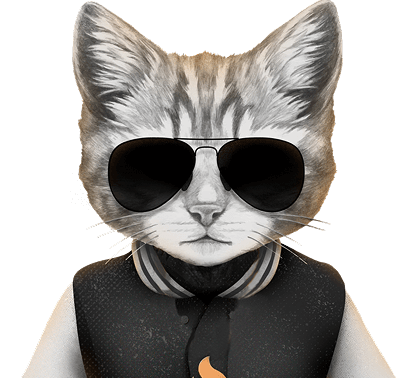
Mango has become increasingly popular on Instagram due to the massive #MangoGirls campaign. Not only did the brand employ content creators to share messages about outfits on Instagram, but it also styled the recent lookbook as models sharing iMessages in an attempt to create a dialogue with the community. Much has been already said about the importance of storytelling in marketing, thus, Mango followed suit both on Instagram and in its catalog.
Examples of storytelling by Mango that you could have seen if you have the Mango app.
#MangoGirls Overall Results
Mango’s recognition on Instagram is impressive, to say the least – 4606 influencers mentioned the brand on Instagram on a free and paid basis in the 6 months period from mid-December to mid-June. The campaign resulted in 43.8M people seeing posts showing different Mango garments. The brand received almost 9,5K mentions on the platform in the last half a year which resulted in $1.5M of the earned media value.
Tapping into the potential that Instagram offers is the activity that many beauty and fashion brands employ. Not only the brands which we born-digital follow this way, but the major retailers such as Mango quickly realized the opportunity to seize the attention of potential customers who definitely spend much time online and even more during the lockdown.
However, we need to be clear: many IG users mention brands because they aspire to be noticed and then to get partnership deals from brands. When we say that Mango obtained $1.5M of the earned media value, it does not mean that the brand paid for all those mentions. If we exclude free mentions, which were done by as many as 9K creators, we get 334 creators who were paid or very probably paid* for a Mango mention.
Thanks to the example of #MangoGirls, we witness the power of influencer marketing: by investing in paid mentions, the brand incites the waves of free mentions which come later on. The paid mentions trigger the new subsequent waves of brand-related publications which will only increase the brand’s recognition.
#MangoGirls Efficiency and Budget
You may ask then, how many creators did Mango really pay to? The reply is 36 creators for the last 6 months. However, we know that in most countries there is no enforcement for marking the posts as sponsored and, above that, often influencers fear the followers’ judgment as a reaction to the blatant promotion of some product. Thus, feel free to take the 334 figure as the most probable number of the creators who were paid for. These 334 creators ensured 34.7M of quality users seeing the content sponsored by Mango.
The estimated budget for #MangoGirls advertising on Instagram varies from almost 790K to 1.6M USD. The overall CPE of the campaign equals $0.24 which is a rather good result if we compare it to market values.
If we talk about the efficiency of the campaign, #mangogirls turn out to be well-executed. The overall engagement rate of sponsored publications with the brand mention equals 3,79% which is a good result. Posts performance, or in simple words, how good the paid content is vs the non-paid one, is also good. Around 60% of all sponsored campaign posts have the engagement rate the same or better than the one of non-paid publications.
What about cost efficiency? Also well performed: 94% of all employed sponsored creators created maximum feedback with less cost. The cherry on top – those were the real people who saw the sponsored posts. Around 70% of influencers engaged in campaigns have a good quality of active audience (which means no bots, few mass followers).
The number of likes and comments the sponsored and probably sponsored posts received has been steadily growing since mid-December. We see the evolution from 19,4K likes and 303 comments to more than 1,3M likes and 25,7K comments as of 16th June. Massive, isn’t it? And these are only reactions to sponsored and probably sponsored posts.
#MangoGirls Influencer Profiles
One of the curious findings for me was to see which countries Mango targeted in its campaign. Will you be able to guess the top five?
Spain
USA
Iraq
France
India
More IG users from these countries saw the sponsored or likely sponsored campaign posts than in others. The main country to be sponsored turns out to be Spain. As for the most prevalent influencers who Mango paid to or likely paid to, were the ones with a 100K-300K audience.
If we take exclusively 36 paid influencers, we will see that Mango kept the selection balanced: 25% of all profiles have 5K-20K audience, almost 20% – ones with 20K-50K followers, 17% – with 50K-100K audience, same percent of 100K-300K creators and ones with 300K-1M audience have 11% from the overall number.
However, if we take a look at the ones who were probably sponsored – the share of 100-300K audience profiles gets significantly bigger becoming the biggest group of account types involved. What may all this mean? Creators with 100K-300K audience did not necessarily disclose paid #mango posts, whereas their counterparts with 5-20K audience – second biggest type involved – mentioned Mango in their publications more often.
The campaign targeted mainly women even though Mango has a menswear line as well. The campaign targeted women of 18 to 34 years old – the prevalent age of the Instagram audience. The overall audience of 36 sponsored #mangogirls equals 5.5M people. The quality audience precisely (we again exclude bots, passive accounts, and other profiles which won’t buy) – 3.7M. If we add up here the likely sponsored ones – we will receive 48,8M and 34,6M respectively. Not bad right?
The most liked content piece by a #mangogirl received 86.7K likes and the most commented one got as many as 392 comments. The highest engagement rate seen on the campaign post equals 27%. However, Mango also largely benefited from likely sponsored content creators: their results are yet more impressive – the most liked piece got 92.5K likes and most commented – 2.4K comments.
Let’s now have a look at what hashtags Mango ambassadors accompanied their publications with. In the top 10, we get #ootd as well as #outfitoftheday and #lookoftheday which are classics of all lifestyle and fashion creators. In addition to that some simple ones as #fashion, #style, #outfit, #fashionblogger, #look and only two directly naming Mango – #mango and #mangogirls. In total, simple and broad hashtags coupled with two minimalist branded hashtags.
#MangoGirls Profiles’ Quality
Among creators who drove the best results were the content pieces by these ladies: @marlapombo – most liked post, @tamumacpherson – most commented post, @nalleosman – a post with the highest ER.
https://www.instagram.com/p/B92MQ__HoXM/?utm_source=ig_web_copy_link
https://www.instagram.com/p/B-VBnC1ibSb/?utm_source=ig_web_copy_link
https://www.instagram.com/p/B9MtvxsBaqc/?utm_source=ig_web_copy_link
Surprisingly but these influencers have rather low scores of the quality of the accounts: 39, 38, and 65 respectively**. This brings up a question how exactly the influencer selection was done? The three accounts belong to three different tiers: 1,5M than 288K and almost 23K respectively which again reflects that Mango’s selection of influencers was balanced.
Looking at the quality of all 36 sponsored influencer profiles, we see that there is no consistency in terms of selection. 16 profiles have the quality from very bad to fair which makes 44% out of all paid creators. The other 20 have either good or very good quality profiles. So what does all this mean?
The fact that influencer profiles have very different quality scores may indicate that the campaign manager was not centralized: #MangoGirls were executed by different managers in different countries and not all of them paid sufficient attention to influencer vetting.
The profiles of 298 likely sponsored profiles reflect the same inconsistent trend. The proportion of good vs bad or average quality accounts is approximately 50/50.
Overall, the analysis of the quality of creators’ profiles allows us to say that even though the campaign brought significant results, it could have been even more efficient if 48% of sponsored and likely sponsored creators with bad profiles quality were replaced by the ones with a better quality score.
Summing Up #MangoGirls
With 334 paid and likely paid creators, Mango managed to build an efficient Instagram influencer strategy from scratch. It went from 133,5K likes as of mid-December 2019 (free and paid) to 12M likes as of mid-June (also free and paid). The paid and likely paid creators ensured the stable growth of the brand’s recognition on Instagram bringing around 1,3 M likes and 25,7K comments over a 6 month period.
If you want to understand the power of influencer marketing, just compare 1,3M likes received by paid and likely paid creators with the overall 12M likes the brand received. So you see now how it works?
About HypeAuditor
The #MangoGirls Campaign Report was done with the use of Research Hub. If you also want to get insights into the strategy of any brand present on Instagram, please contact the Sales or Customer Success Team.
*How does HypeAuditor identify paid and likely paid mentions?
To detect if a post is sponsored, we use the Instagram Paid Partnership Feature, as well as identify the undisclosed sponsored publications with the use of machine learning algorithms. For the latter, we identified the most common hashtags creators use to indicate their affiliation to a brand.
Paid Partnership. Posts marked using Instagram’s Paid Partnership Feature are counted as sponsored.
Common sponsor hashtags. Many influencers disclose an Instagram sponsored post by placing #sponsored or #ad hashtags in their captions. This method is fully compliant with FTC and CMA guidelines, thus at HypeAuditor, we analyze these posts as sponsored too.
Machine learning. Since not all influencers properly disclose whether a post is sponsored, and only a few countries have a disclosure policy, we use a machine learning-based approach allowing to reveal whether a certain post is sponsored.
These include:
Ambiguous disclosures like #thanks, #collab, #sp, #spon, #partner, #ambassador, etc.
All types of disclosure in other languages, e.g. #sponsorisé, #produitoffert, #partnerschaft, #kooperation, #partenariat, etc.
Non-hashtag disclosure, e.g. “Thanks to @brand for sponsoring”, “Shoutout to @brand for sending me this awesome makeup palette as a gift.”, etc.
The exact number of sponsored posts within the Instagram influencer market remains difficult to calculate, but the HypeAuditor methodology is the most complete of those that are present on the market.
To estimate expenditures, we used data that includes: influencer country, number of followers, engagement rate, and overall audience quality. Then we define the price of a sponsored Post and Story, using machine learning algorithms trained on market values.
**How does HypeAuditor evaluate the quality of an influencer’s profile?
Please visit our FAQ section to learn what HypeAuditor considers as accounts with good, fair, and bad quality.
HypeAuditor Services
HypeAuditor is a SaaS company offering complex solutions to brands, agencies, and platforms working with influencers.
HypeAuditor has developed a comprehensive set of tools to discover and compare influencers on Instagram and YouTube, verify the authenticity of their accounts and track the results of influencer marketing campaigns.
All services are based on machine learning and artificial intelligence. The two enable the identification of behavioral patterns on the basis of which the algorithm draws conclusions. HypeAuditor’s goal is to provide the ultimate analytical services to ensure that brands and agencies work effectively with creators.
The company is about to launch a Research hub where clients will be able to obtain analytical insights into trends in the industry of choice, view the practices that brands and agencies are implementing, and consequently develop their influencer marketing strategy based on market needs and practices.







